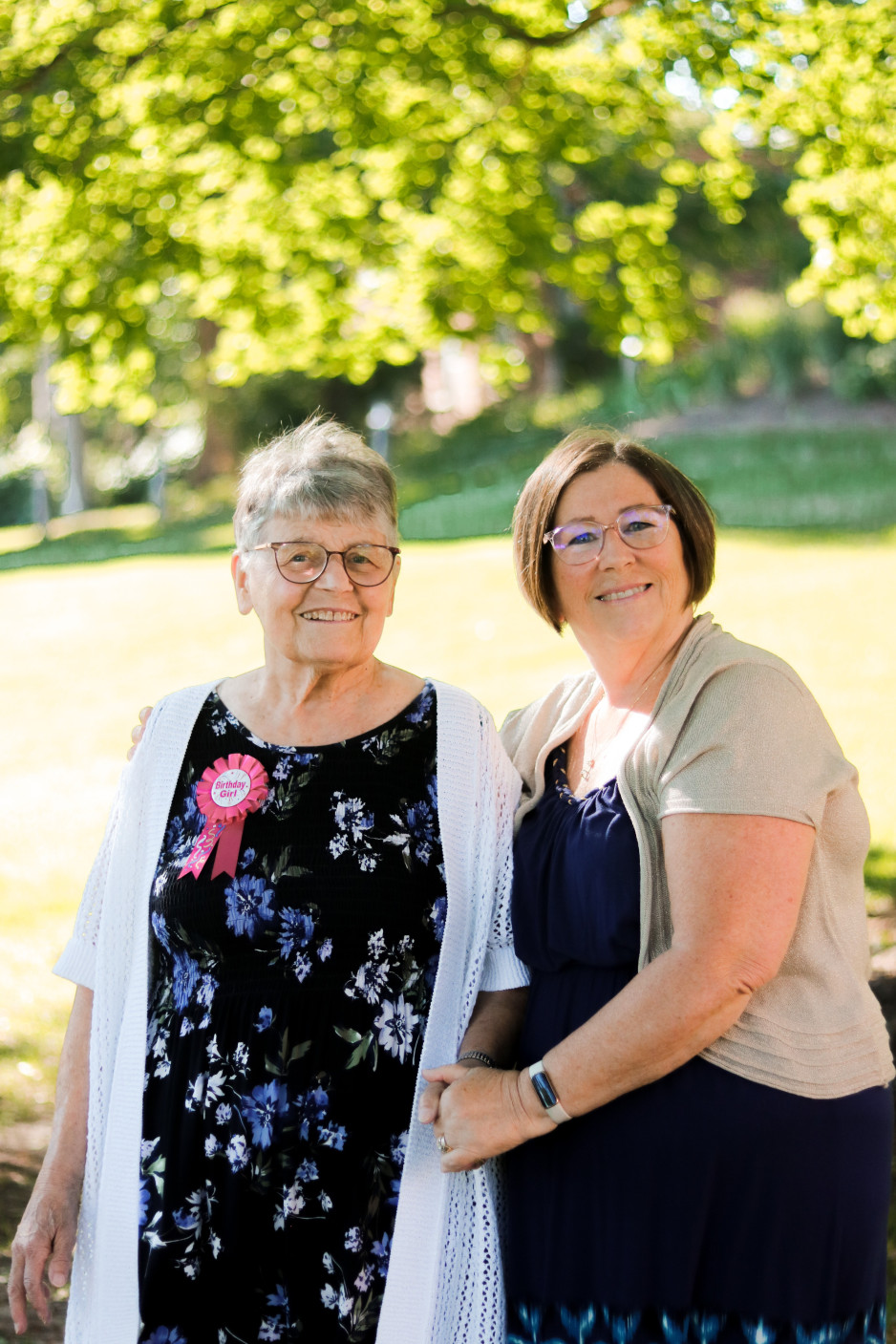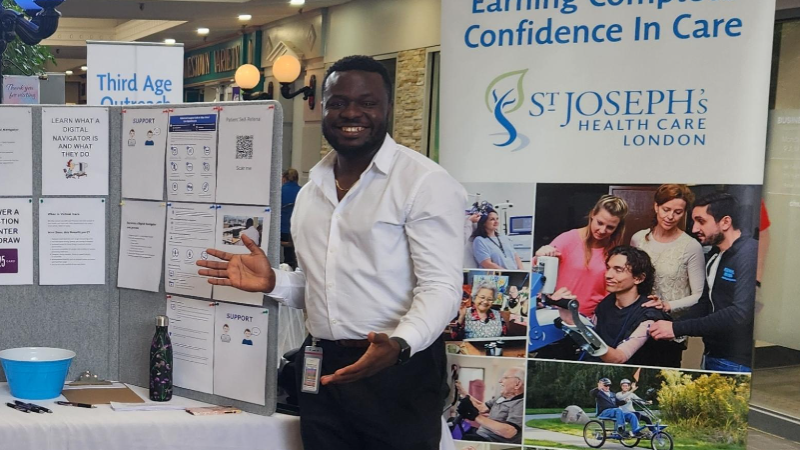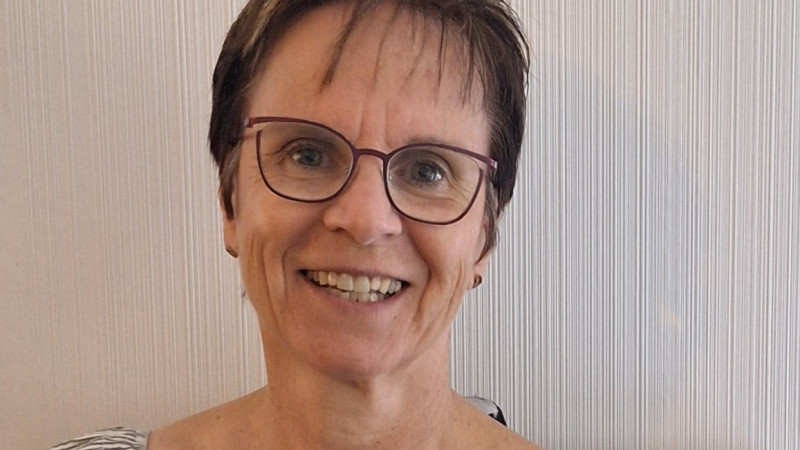Effective care, less stress
For eight years, Maggie Perquin was a caregiver for her partner, Ruth, as she navigated life with Alzheimer’s. Throughout, Maggie was able to care for Ruth at home, until Ruth passed away in April 2023. During much of that time, Maggie was grateful for virtual care appointments with specialists and others - for the convenience they provided and much more.
“Getting Ruth ready and out the door for an appointment, manoeuvring in and out of the car and into a wheelchair, and ensuring we arrived on time would take at least 2 ½ hours of lead time,” explains Maggie. “For a 10 am appointment, the prep would start at 7 am.”
Ruth received geriatric care at St. Joseph’s Health Care London’s Parkwood Institute throughout her journey with dementia. After a fall that resulted in a broken collarbone and wrist, she also became patient at St. Joseph’s Roth McFarlane Hand and Upper Limb Centre at St. Joseph’s Hospital. Ongoing monitoring of her diabetes was also part of Ruth’s care needs.
“Many of the consults and follow-up visits that Ruth required were done virtually,” says Maggie. “Appointments with physicians, the physiotherapist, occupational therapist, dietitian were all done without leaving home.”
Beyond the convenience, the virtual visits were much more successful than in-person appointments from a care perspective.
“If we had to come into the hospital, Ruth was distracted looking at all the unfamiliar things and people. I wanted her voice to be heard and she couldn’t do that because of all the distractions and the confusion it caused. At home, she was comfortable and could engage more effectively. We avoided all the stress on both of us, the distractions for Ruth, and the clinicians could get a much better handle on her cognition.”
Equally important, “I feel we were seen more often and sooner with less wait time than if we had chosen to do an in-person visit,” adds Maggie.
For many older seniors, the challenges and stress of in-person appointments can impede the success of the appointment, says Maggie, whose own experience is helping to advance virtual care in London and enhance the experience for patients and their loved ones. She is among a group of care partners from St. Joseph’s and London Health Sciences Centre who meet regularly to advise on virtual care priorities, tools, accessibility, processes and more at the two hospitals. Her advice to others who could benefit from virtual care is to reach out to the digital navigator and “go for it.”
“It’s a free service. Grab hold of it. The navigator can have practice appointments with you and step you through it so you feel ready and able. You will discover just how effective and efficient virtual care can be.”



